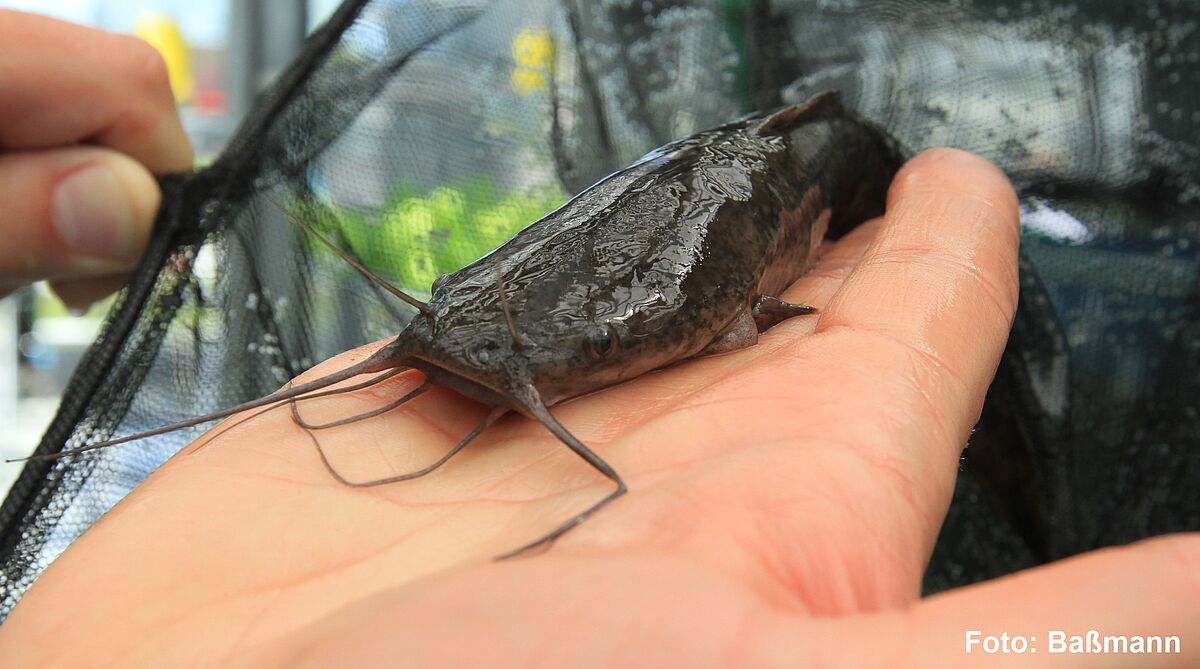Animal Welfare
Animal welfare in aquaculture

The problem
Animal welfare is becoming increasingly important. It can be defined as the quality of life for farm animals. Increasing the well-being is not only important from an ethical point of view; it also offers benefits because animal welfare is closely linked to the health of animals. Thus, an increased animal health can improve the product quality and prevent diseases without the use of medicaments.
However, the welfare issue has so far been more related to other farm animals such as pigs, cattle or poultry. Lately though, welfare has been extended to fish; it is then referred to as fish welfare. According to scientific knowledge, fish are sentient creatures, even if it is not always apparent at first sight. Therefore, it is fair to meet the requirements of the fish to a species-appropriate husbandry.
The approach
In order to assess the fish welfare as good as possible, various aspects have to be considered. Only the combination of these aspects allows a well-founded evaluation of the fish welfare.
- Physiology - biochemical processes in the organism
- Ethology - investigations of (typical) behaviours
- Habitus - detection of the external body condition
The methodology
The aquaculture of fish is not necessarily comparable to the husbandry of terrestrial farm animals. Due to their direct interactions with aquatic environments, fish are exposed to completely different conditions and require an adequate and species-specific husbandry form. The quality of the water plays the most important role, as fish permanently live within this medium. The water quality is influenced by the stocking density, which must be considered differently from that of terrestrial livestock. Many fishes form swarms under natural conditions, and, in contrast to terrestrial farm animals, they can freely move within the vertical dimension.
However, the requirements for the husbandry conditions are not the same for all fish, and might vary depending on the fish species or developmental stage. Feed composition and distribution as well as the anthropogenic handling of the fish (transport, striping, etc.) can have an effect on the welfare.
Since 2014/2015, in particular with the completion of the FishGlassHouse, the subject of animal welfare is being studied at the Department of Aquaculture & Sea Ranching, focusing on the combination of different animal welfare aspects. For instance, the stress hormone cortisol and also metabolic factors, such as glucose and lactate, have been investigated as physiological parameters. With video and direct observations, the behaviour of the animals was analysed and evaluated. Finally, the external condition of the animals was used as a further criterion in order to obtain additional information regarding the fish welfare.
Status
Currently, the Department of Aquaculture & Sea Ranching focuses on the fish welfare related to aquaponics. The influence of the plants in a combined, -synergetic cultivation has been proven to be positive for fish. For instance, it has been shown that African catfish (C. gariepinus) kept within aquaponic systems had significantly fewer external injuries than those in a comparable husbandry without plants.
Outlook
In this research field, there are still many open questions: How does the aquaponic cultivation affect plants and fish? Which interactions do occur? Are there advantages or disadvantages with regard to animal welfare in aquaponic systems and what causes do they have? How do certain nutrient concentrations affect the animals?
However, it is also important to expand basic research. Fish welfare can be a very complex subject, since the various species can have very different requirements and can also differ individually within one type.
